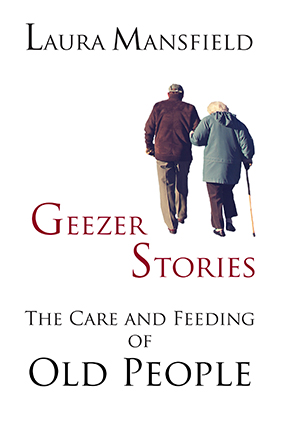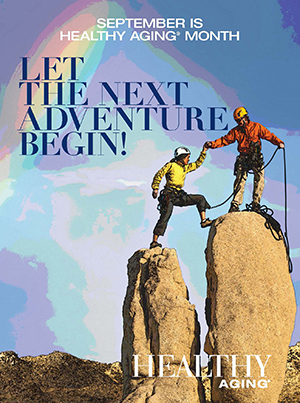
Taffy or Sandwich Generation? Photo: Deposit Photos
By Laura Mansfield
I tell my son that when I’m old I’ll travel the world and stay in elder hostels or teach yoga to seniors on a cruise ship. He won’t have to upend his life to look after me the same way I have for my aging parents.
As a member of the Taffy Generation, or Gen T for short, I’m being pulled apart by the competing demands of caring for my own child while caring for my elderly parents as they slide into their second childhoods. The term “sandwich generation” just doesn’t cut the mustard anymore.
This phenomenon is relatively new, as our parents’ parents didn’t live as long. Due to medical advances, the super elderly are a growing demographic. In fact, older Americans will outnumber children for the first time in U.S. history by 2035. As a nation, we’re having fewer children and waiting longer to have them. According to the most recent estimates from the U.S. Census Bureau, the average age of first marriage for women is 28.6 years. For men, it’s slightly older at 30.5 years. That’s the longest Americans have ever waited to get married.
Meanwhile, the cresting wave of Baby Boomers is surging into old age. In fact, aging Boomers could fuel a 75 percent increase in Americans requiring nursing home care by 2030.
The supply of caregivers is shrinking just as the nation needs them most. Every day, 10,000 people turn 65. In 2020, there will be 56 million people 65 and older, up from 40 million in 2010. The so-called Silver Tsunami is coming.
Not only are we living longer, our adult children are waiting longer to leave the nest. Consider the poster boy of emotionally stunted millennials, Michael Rotondo, whose parents had to sue him to get him out of their basement.
While I don’t believe he accurately represents his generation, the case is a metaphor for our times. Helicopter parents have hatched offspring who view “adulting” as a chore rather than a privilege. When these young people do finally move out, they’re more mobile, meaning more long-distance caregiving.
So, who will care for us when the time comes?
Creative real estate developers looking to cash in on the housing shortage for seniors suggest something called “intentional neighboring,” which reminds me of Gwyneth Paltrow’s infamous “intentional uncoupling,” as she described her divorce from Coldplay’s front man, Chris Martin. We collectively smirked at the new-age euphemism.
These planned pocket neighborhoods with shared gardens, driveways, and dinners are designed to foster “aging in community” as an alternative to traditional assisted-living facilities and nursing homes. There’s something sweet and nostalgic about neighbors looking out for each other – isn’t that the way it’s supposed to be? While these housing collectives won’t meet the needs of people suffering from dementia, terminal illness, or severe physical limitations, perhaps they will keep us independent and in our own homes longer.
 Because we Americans are nothing if not independent. It’s part of our psyche, our pioneer archetype. The idea of being institutionalized is anathema to us, especially in this era of on-demand everything.
Because we Americans are nothing if not independent. It’s part of our psyche, our pioneer archetype. The idea of being institutionalized is anathema to us, especially in this era of on-demand everything.
We shudder at the thought of scheduled meals and mandatory wake-up times, bed checks, and bland foods. Not to mention the sky-rocketing costs associated with institutional care.
Who will shoulder that financial burden – the government or the private sector? With our population aging out of the workforce, our tax base to support federal programs such as Social Security and Medicare is drying up like a puddle on the pavement in the hot sun.
My solution has been to try to find the humor in the heartache of minding my elders. To count my blessings and consider it a privilege to shoulder the responsibility of caring for the Greatest Generation. I can only hope the next generation feels the same way about us.
Chew on that thought while you still have your own teeth.











